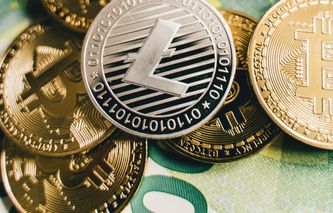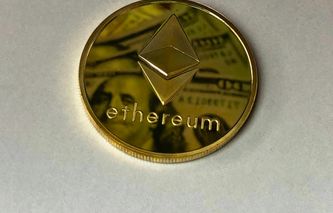Bitcoin, the rebel of the financial world, has decided to stroll past the $73,000 mark, much to the delight of its enthusiasts and the chagrin of its skeptics. Then, much to the enthusiasm of skeptics and the chagrin of Bitcoin enthusiasts, Bitcoin got punched in the face and slid down to the $64,000 level.
But let's focus on the big event over the past few weeks: Bitcoin breaking prior all-time highs and hitting new all-time highs. What makes this Bitcoin and broader cryptocurrency expansion phase different from in years past?
We'll break it down.
The Halving Hype: Countdown to Scarcity
First on the list is the Bitcoin halving—an event less understood by the masses than why we need daylight savings. Scheduled to take place in about a month, this digital scarcity booster is a ticking time bomb for supply dynamics. In simple terms, the rewards for mining new blocks are slashed in half, effectively making Bitcoin twice as hard to come by. Why does this matter? Because the mere hint that something is becoming rarer sends people into a buying frenzy.
If you're wondering where the best place is to buy BTC, look no further than our guide to the top 10 crypto exchanges!
Debt, The American Way
Moving on, let's chat about the U.S. national debt. It's growing faster than an STD outbreak in a coed freshman dormitory and currently sitting prettier than ever at a number so high that it feels up for dramatic effect. This ever-increasing mountain of IOUs has investors wringing their hands and looking for a lifeboat. Enter Bitcoin, a store of value but cooler because it's decentralized.
Investors are seeing Bitcoin as a hedge against fiscal irresponsibility, a digital gold for the modern era. Speaking of which…
Gold's Out, Bitcoin's In
Gold has been the go-to for people looking to keep their wealth safe from inflation and economic downturns. But let's be honest: It's 2024, and lugging around bars of gold is about as practical as using a fax machine. And 'paper' gold (ETFs, proof-of-ownership, held in someone else's vault, etc.) is ultimately worthless. With its digital swagger, Bitcoin is stepping in as the new kid on the block.
And let's talk about that fixed supply of Bitcoin. There can't be any more made. Gold bugs have been shouting for centuries about how rare and important gold is and how scarce it is. But, shockingly, this scarce metal keeps getting found and mined.
The narrative of Bitcoin as 'digital gold' is catching on. People aren't just allocating a portion of their gold investments into Bitcoin; they're starting to question why they ever thought storing wealth in a metal that's primarily used for jewelry was a good idea in the first place.
The ETF Effect: Bringing Bitcoin to the Masses
Exchange-traded funds (ETFs) for Bitcoin are like getting an invitation to the Oscars. Suddenly, you're not just a talented indie actor; you're in the spotlight, baby. The introduction of Bitcoin ETFs has provided a bridge for traditional investors to wade into the cryptocurrency waters without getting their feet wet. It's the financial equivalent of a guided tour into the wild west of crypto, led by a suited-up, Wall Street-approved guide.
The arrival of Bitcoin ETFs has been akin to rolling out the red carpet for institutional investors. These funds allow investors to gain exposure to Bitcoin without the hassle of managing private keys or wrestling with the existential dread of potential exchange hacks. It's Bitcoin with a bow tie, and Wall Street is eating it up.
Interested in buying ETFs? Discover how as we rank and review the best options!
BlackRock and Fidelity: The Big Guns Are Here
When firms like BlackRock and Fidelity enter a market, they don't just dip a toe in; they perform a cannonball that sends ripples across the financial ecosystem. Their involvement in Bitcoin signals a level of acceptance and legitimacy that the crypto world has been craving since its inception.
Suddenly, everyone wants to be there. Fidelity has also thrown its hat into the ring, adding its considerable clout to the growing acceptance of Bitcoin as a legitimate asset class.
Accumulating Against Uncertainty
But why this sudden affection for Bitcoin? Beyond the allure of entering a rapidly growing market, these financial titans are hedging their bets against economic uncertainty. With the U.S. national debt spiraling and inflation more unpredictable than a soap opera amnesia plotline, Bitcoin offers an attractive alternative to traditional hedges like gold.
It's about protection against the vagaries of traditional financial systems, which seems totally weird when two entities that define traditional financial systems get into Bitcoin. With its capped supply and decentralized nature, Bitcoin presents a compelling case for investors looking to shield their portfolios from inflationary pressures and currency devaluation.
And Everything Else
Of course, there are other factors at play: mainstream finance's adoption, the allure of decentralization in a world where privacy is a rare commodity, and let's not forget the FOMO (fear of missing out) effect. Nothing says, "I need to buy this now," like watching your neighbor turn a tidy profit while you sit on the sidelines.
Beyond the Glitter: What This Means for Bitcoin
Is this the peak, or just a brief layover on its way to the stratosphere? Well, if history has taught us anything, it's that predicting Bitcoin's future is like trying to guess the plot twists in a telenovela. When you think you've figured it out, it surprises you again.
In the grand scheme of things, Bitcoin's price movements reflect our collective belief in its value as much as they do tangible factors like halving events and economic conditions. It's a digital Rorschach test; what you see in it says more about you than Bitcoin.
As for why it's moving higher? Well, it could be the halving, the national debt, the shift from gold, or maybe it's just that Bitcoin has decided it likes the view from up here - or, all of it. So, strap in, and keep an eye on the markets. After all, it's not every day you get to witness the rewriting of the financial rulebook.






